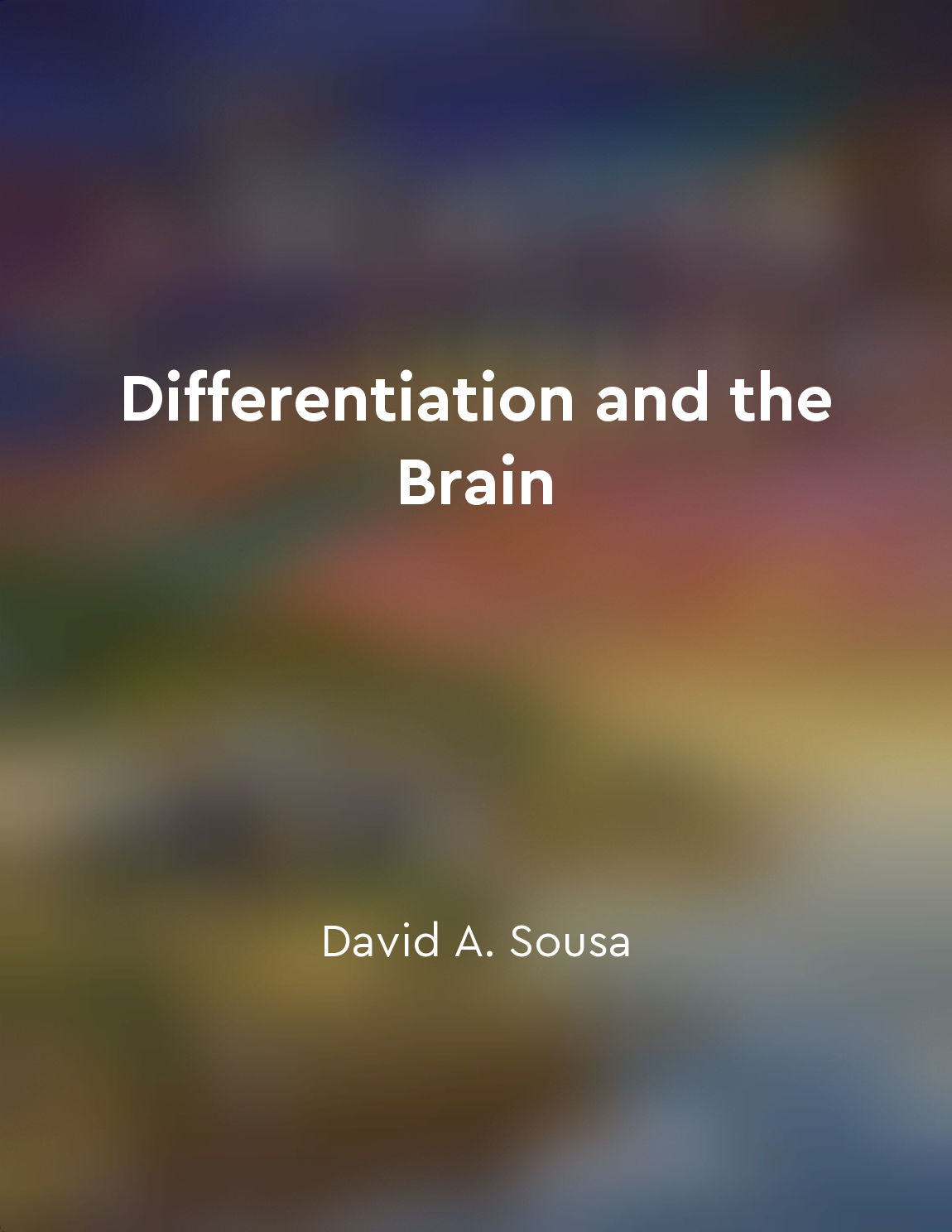Brain research can inform effective teaching practices from "summary" of Differentiation and the Brain by David A. Sousa,Carol A. Tomlinson
Understanding how the brain works can provide valuable insights into how to create more effective teaching practices. By examining how the brain processes information, educators can tailor their teaching methods to better meet the needs of diverse learners. Differentiation, the practice of adjusting instruction to meet the needs of individual students, can be enhanced by incorporating knowledge of brain research into lesson planning. Neuroscientific findings suggest that students have different learning styles and preferences, which can impact how they absorb and retain information. For example, some students may learn best through visual aids, while others may benefit more from hands-on activities. By recognizing these differences and incorporating a variety of teaching strategies, educators can better engage students and facilitate deeper learning experiences. Furthermore, understanding the role of emotions in learning can also inform effective teaching practices. The brain processes emotions and learning in interconnected ways, with emotions influencing attention, memory, and motivation. By creating a positive and supportive learning environment, educators can help students feel more engaged and motivated to learn. In addition, brain research highlights the importance of providing students with opportunities for active learning and meaningful connections. When students are actively engaged in the learning process, such as through discussions, group work, or real-world applications, they are more likely to retain information and make connections between new and existing knowledge. By incorporating these active learning strategies into their teaching practices, educators can help students build a deeper understanding of the material.- By integrating insights from brain research into teaching practices, educators can create more engaging, effective, and personalized learning experiences for their students. By recognizing the diverse needs and preferences of learners, addressing the role of emotions in learning, and providing opportunities for active engagement, educators can better support student success and promote a love of learning.


